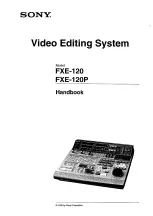
9
shaped Polar Pattern is called a cardioid microphone. The cardioid is most
sensitive to the sounds which are arriving from the front, the sounds which
are arriving from 90 degrees to the side is 6 Decibels less sensitive to the
front . Theoretically, it is completely insensitive to the sounds coming from
the rear. In practice, the 100% directional qualities of a cardioid are impos-
sible to achieve due to reflected sounds from walls and ceiling, which are
entering the sensitive area of the microphone.
The most important attribute of the cardioid is the microphone can discrimi-
nate between direct sounds and reverberant sounds, which are coming from
all other directions at random. One of the most important uses of cardioid
microphone is in sound reinforcement, where the directivitive allows the
system gain to be higher without generating acoustic feedback.
What is dynamic microphone?
The most common type of microphone is the dynamic,and the dynamic
microphone is like a miniature loudspeaker. Dynamic microphone is highly
dependable, rugged and reliable, they are very common in stage use, where
physical strength is very important. They are also use in outdoor paging
applications and in recording studios.
What is condenser microphone?
Condenser microphone is a very simple mechanical system, compared to
other microphone types condenser microphone, it includes almost no
moving parts. It is simply a thin stretched diaphragm that held very close to
a metal disc which called a backplate. When sounds acts on the dia-
phragm, the pressure variations cause it to move slightly in response to the
sound waveform, and the capacitance and the voltage on the backplate will
vary. This voltage variation is the signal output of the microphone. The
condenser microphone has extremely high output impedance; it must be
placed very near to a preamplifier to avoid loss of the signal.
POLAR RESPONSE
Cardioid Figure-8
Summary of Contents for MM 1805
Page 1: ......
Page 24: ...23 3 2 VIDEO POST PRODUCTION 3 APPLICATION 3 1 DJ MIXING ...
Page 25: ...24 3 3 SUBMIXING ...
Page 26: ...25 3 4 STANDARD CONNECTION ...
Page 27: ...26 4 APPENDIX DIGITAL EFFECT MODE AND PATTERN EFFECT 1 ROOM EFFECT 2 HALL ...
Page 28: ...27 EFFECT 3 PLATE EFFECT 4 CHAMBER ...
Page 29: ...28 EFFECT 5 GATED REVERB EFFECT 6 REVERSE REVERB ...
Page 30: ...29 EFFECT 7 MONO DELAY EFFECT 8 OFFSET DELAY ...
Page 31: ...30 EFFECT 9 MONO TAPPED DELAY ...
Page 32: ...31 EFFECT 10 MULTI TAP DUAL DELAY ...
Page 33: ...32 EFFECT 11 ST CHORUS EFFECT 12 ST FLANGE ...
Page 34: ...33 EFFECT 13 CHORUS DELAY ...
Page 35: ...34 EFFECT 14 FLANGE REVERB ...
Page 36: ...35 EFFECT 15 CHORUS REVERB ...
Page 37: ...EFFECT 16 DELAY REVERB 36 ...
Page 38: ...37 5 SPECIFICATIONS ...
Page 39: ...38 6 SYSTEM BLOCK DIAGRAM ...
Page 40: ......











































